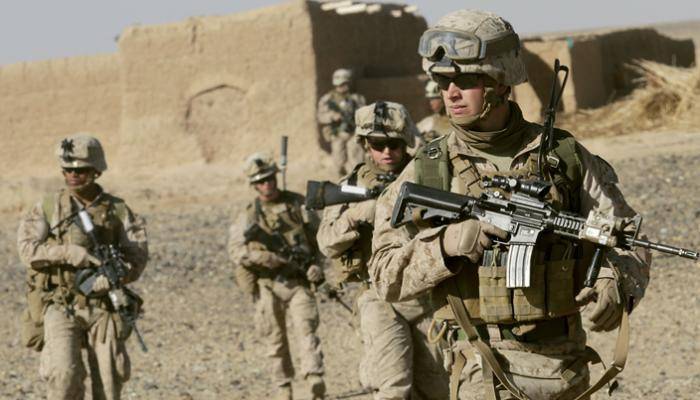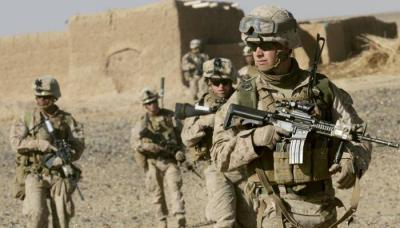The British magazine "The Economist" was not surprised by U.S. President Joe Biden's response when a reporter asked him about the implications of the withdrawal from Afghanistan: "I want to talk about happy things, man!"
It is true that al-Qaeda is no longer a significant force in the country, although it has not been completely eradicated. However, anti-American terrorist groups still operate in Afghanistan, such as a branch of ISIS. Clearly, Biden wanted to change the subject since the U.S. fought in Afghanistan for twenty years, spending more than two trillion dollars on the war while losing several thousand of its troops and tens of thousands of Afghans, both soldiers and civilians. Now, the U.S. calls for the entire unfortunate adventure to end without presenting any significant achievements.
### Terrifying Return
While al-Qaeda is no longer a major force, anti-American terrorist groups continue to operate in Afghanistan, including a branch of ISIS. The Taliban, which provided refuge to Osama bin Laden and was ousted by Americans after the September 11 attacks, is making a terrifying return. They fully control half of the country and threaten to overrun the other half. The democratic, pro-Western government, which persisted thanks to American blood and money, is widely corrupt, disliked, and in a continuous decline.
### Frustrating Scene
Theoretically, the U.S.-backed Kabul government is negotiating with the Taliban over a peace agreement under which the rebels would lay down their arms and participate in a redesigned political system. According to the best-case scenario, U.S. financial and military support for the government coupled with immense pressure on the Taliban’s allies, such as Pakistan, could create some form of power-sharing. However, even if this occurs, and its prospects are slim according to the magazine, the scene would be frustrating. The Taliban would insist on proceeding with their regressive policies, imposing a brutal theocracy similar to what they enforced during their previous rule, when they imprisoned women in their homes, banned girls from attending school, and imposed harsh punishments for "sins" like wearing the wrong clothing or listening to the wrong music.
### Slow Strangulation
The magazine suggests that the Taliban may use their battlefield victories to forcibly topple the government. They have already swept through many rural areas as government forces remain concentrated in cities and towns. Meanwhile, the demoralized government forces are abandoning their strongholds. Last week, over a thousand troops fled to Tajikistan from Badakhshan. The Taliban has not been able to seize and hold any city, and it may lack enough fighters to capture multiple areas simultaneously. Instead, the movement may prefer to slowly strangle the government rather than attack it directly. However, the momentum is clearly on their side.
### More Bloodshed
At the very least, the civil war is likely to intensify as the Taliban advance and the government struggles to survive. Other countries such as China, India, Iran, Russia, and Pakistan will seek to fill the vacuum left by the United States. Some will smuggle weapons and cash to warlords. The result will be more bloodshed and destruction in a country that has suffered unrelenting war for more than 40 years. Concerns that the Taliban would carry out revenge operations against locals who worked as interpreters for Americans overlook the bigger picture: the U.S. is leaving an entire nation of about 40 million people to a horrific fate.
### Even a Blocked Horizon Is Valuable
It didn't have to end this way, the Economist continues. For the past six years, 10,000 U.S. troops and a similar number of NATO forces have managed to stabilize the Afghan army. This has maintained the status quo. American casualties dropped to nearly zero. The war, which once angered voters, has become irrelevant in the U.S. The American presence in Afghanistan has become so minimal that it has not affected the administration's focus on China and Russia. Washington sees the blockage in Afghanistan as evidence that staying there is pointless. However, for the Afghans who were protected by Washington from the Taliban, the blocked horizon was valuable.
### Another Vietnam?
There will be a long debate about how much the withdrawal undermines the credibility and status of the United States. Despite its wealth and power, Washington did not only fail to establish a strong, self-reliant Afghan state but also fell short of defeating the insurgents. The U.S. is no longer willing to support the Afghan government, which it was supposed to ally with, and this is shocking and infuriating to Afghan officials. Russia and China have noted this, as have U.S. allies. However, all of this does not make Afghanistan another Vietnam.
Afghanistan was never truly a focus of the Pentagon or Americans. Soldiers remained in Afghan territory far longer than they did in Vietnam and suffered far fewer casualties than they did in Vietnam. The war in Iraq and the financial crisis attracted more attention than Kandahar did. To see foreign observers view this withdrawal as a sign of American weakness is to miss the fact that this weakness has been apparent for a long time.
### Back to Square One
Afghans' lives today are more insecure than ever. The magazine notes that civilian casualties were 30% higher than they were in 2001, when the U.S. military deployment began. The economy is no bigger than it was a decade ago. The clerics are not just at the gates of the capital: they kill inside and target anyone who offends their narrow worldview. The U.S. could never solve all of Afghanistan's problems. But leaving the country back at square one is a profound failure, the magazine concludes.




